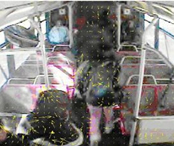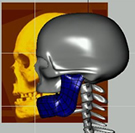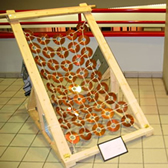|
|
||||||||||||
 |
Rapidly growing mobile and online videos have enriched our digital lives. They also create great challenges to our computing and networking technologies, ranging from video indexing, analysis, retrieval, to synthesis. We found that a significant gap still remains between low-level features and high-level semantics. The objective of this course is to overview the major discoveries in human perceptions of motion, abstraction and communication and the state-of-the-art of video computing models and technologies. In this class, we intend to bring students from a broad range of backgrounds to discover computational theories and models behind the real-world video applications. We especially want to explore novel approaches toward semantic video understanding. The class is expected to be interactive and productive. The class will cover attention and eye tracking, visual illusion, sound recognition, gesture and motion capture, emotion recognition, event and object detection, super-resolution, augmented reality, video summarization and interface design, and quality of experience in video network systems. Students will have hands-on experience with cutting edge devices such as an eye tracker, mocap, and infrared camera. The class assignments include homework and a class project. Pre-requisites: Discussions with the instructor prior to registering for the course is highly recommended. |
Image, Video and Multimedia: 18-799K
Fall 2011, 12 units
 |
The course is designed to explore video computing algorithms including: image and video compression, steganography, object detection and tracking, motion analysis, 3D display, augmented reality, telepresence, sound recognition, video analytics and video search. The course emphasizes experimenting with the real-world videos. The assignments consists of four projects, readings and presentations. Prerequisites: MATLAB or C |
Perceptive Computing: 05-899D
 |
Perceptive Computing is a computational simulation of human insight or intuition in surviving, learning and reasoning. It is a way to summarize seemingly disjointed data into significant parts and pass the summary information to decision entities. The goal of this advanced project course was to develop novel perceptive algorithms for solving real-world problems. All the data used in this class were extracted from actual research projects. One paper from the class was published at a conference in Italy. This graduate class, taught by Yang Cai, was offered at Carnegie Mellon University in both the fall and spring of 2003. |
Human Algorithms: 06-427(Fine Art), 05-899E (HCI)
 |
The goal of this studio class was to create digital human models that interact with environment and culture. The content included figure modeling, age morphing, tactile sensing and modeling from artifacts. The final project was to develop a collection of artifacts that brought digital life to an archeological site (5500 years old) in Kazakhstan. Students worked in a production team, guided by experts from Carnegie Museum. This graduate class, taught by Yang Cai, was offered at Carnegie Mellon University in the fall of 2003. |
Innovation Process: 05-899C
 |
The course was designed to train fearless students in how to apply innovation process in human-computer interaction design. It introduced essential creative thinking methods for idea generation at the early innovation stage. Those methods included TRIZ that has been used in companies such as Kodak and 3M. Practical case studies were discussed in the class. Students were required to accomplish a self-initiated term project that was presented at Carnegie Science Center for a public exhibition from Dec 10 through Dec 17, 2002. In addition, the students interacted with designers, artists and a group of local visually-impaired computer users. This graduate class, taught by Yang Cai, was offered at Carnegie Mellon University in the fall of 2002. |
